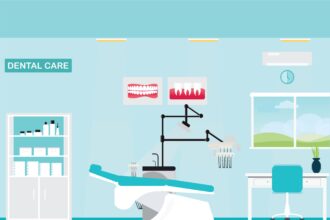Most patients feel that the biggest problem with health care today is that there are just not enough good doctors. They feel that the few good doctors in their town are extremely busy and don’t have enough time for them. Most good doctors offer appointments after 2 to 3 weeks – and then when they finally do see you , they usually make you wait for 2 to 3 hours and usually talk to for just about 5 to 6 minutes. This lack of communication creates a lot of angst and disharmony amongst patients who feel that they are not getting the best possible medical care.
Most patients feel that the biggest problem with health care today is that there are just not enough good doctors. They feel that the few good doctors in their town are extremely busy and don’t have enough time for them. Most good doctors offer appointments after 2 to 3 weeks – and then when they finally do see you , they usually make you wait for 2 to 3 hours and usually talk to for just about 5 to 6 minutes. This lack of communication creates a lot of angst and disharmony amongst patients who feel that they are not getting the best possible medical care.
Patients feel trapped and helpless because they feel that it’s the doctor who has all the specialised medical knowledge and skills and tools in order to help them to get better ; and that if there just aren’t enough good doctors, what can they as poor patients do? This is why they will often use contacts in order to get an appointment with the person who is considered to be the best doctor in town, so that they can have access to his special skills.
Part of the problem with this approach of course is that there’s very little which doctors themselves can do to fix the problem. Busy doctors just keep on getting busier and busier and since they have a limited amount of time and energy in a day there’s no way they can spend more time with each patient even if they would like to be able to do so. Even worse the tragedy gets compounded because equally efficient doctors don’t have enough patients to see, as a result of which their skills get underutilized and wasted , causing a lot of frustration and unhappiness for everyone within the system.
The government & medical authorities also seem to be equally helpless because the standard response is “If there aren’t enough doctors , what we need to do is open new medical colleges and creates new doctors , in order to improve the doctor-patient ratio. “ Unfortunately, this is not likely to help because most patients will flock to just the top one or two percent of doctors , as a result of which the problem just continues to perpetuate itself.
I think the key lies in reframing the problem. It’s not a shortage of doctors which is the problem – it’s the fact that patients feel powerless and helpless and do not realize how much they can do to help themselves, which is the real problem. We’ll never be able to create enough doctors – we all know that. However, what we can do is create lots of expert patients ! Patients can learn to take better care of themselves , so that they are no longer passively dependent on their doctors. This is a very effective solution which will help to make sure that medical care gets more evenly distributed . Patients empowered with information can better make use of whatever medical resources are available to them .
It’s not the large number of patients which is the problem , but rather the fact that patients feel that they cannot do anything for themselves without the help of medical assistance from their doctors . We need to remember that patients are the largest untapped healthcare resource and we need to reinforce their ability to take care of themselves. Lots of health problems are self-limited and get better on their own ; while others are chronic problems for which the patient needs to institute lifestyle changes for himself . Very few problems are dramatic or urgent , which require emergency attention from a doctor. This approach will not make doctors obsolete or redundant – it’ll just ensure that we will be able to make better use of the limited resources we have available.







